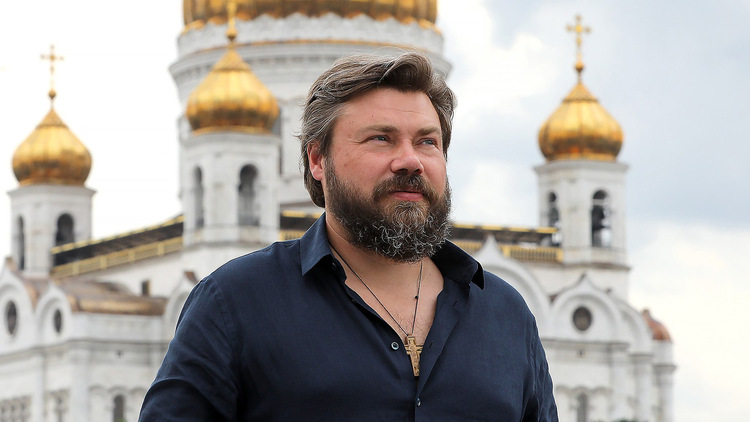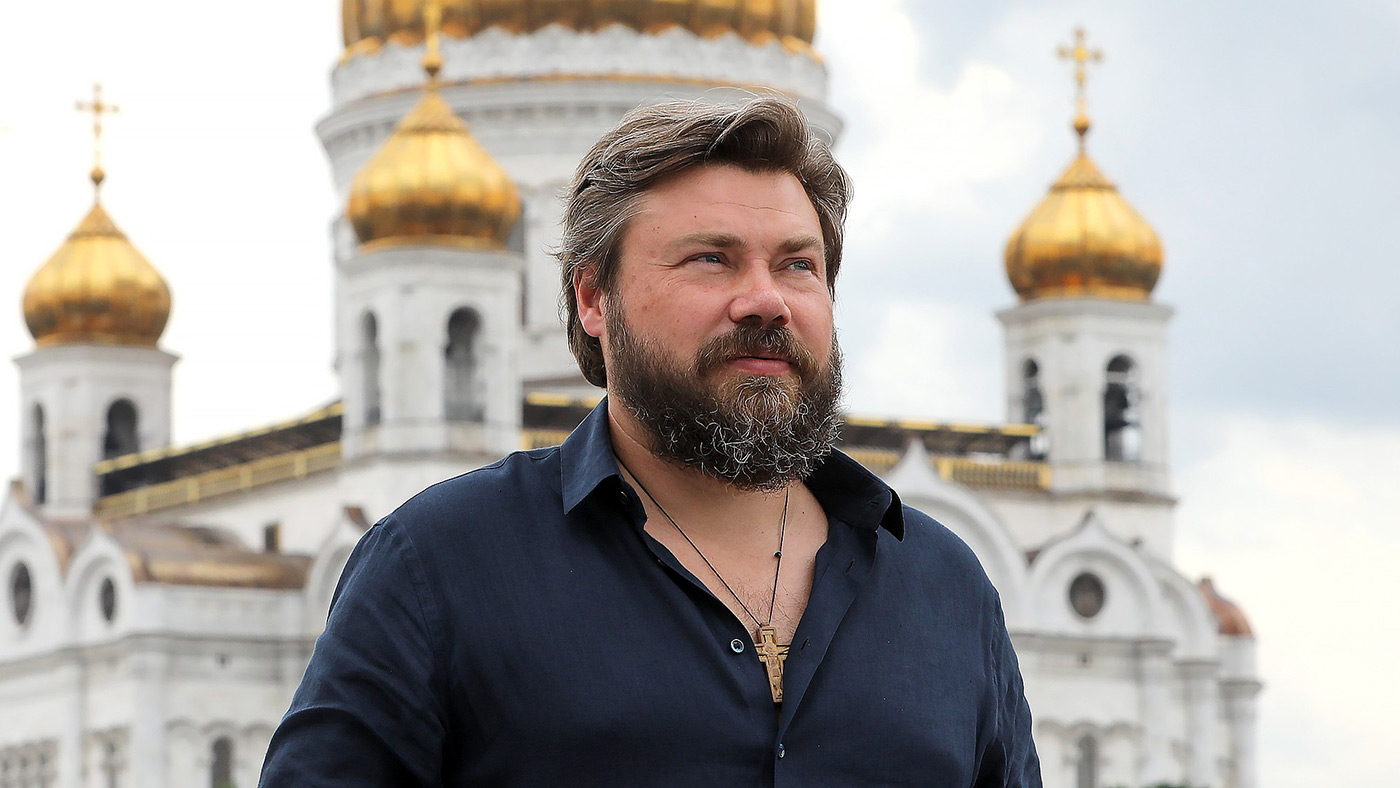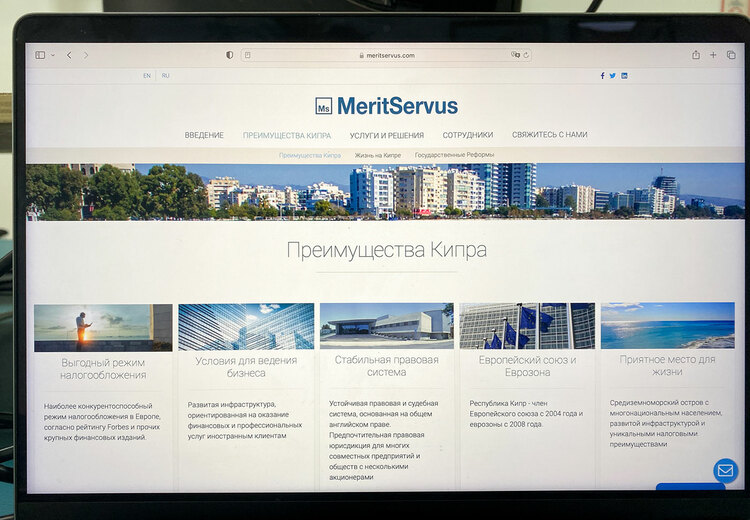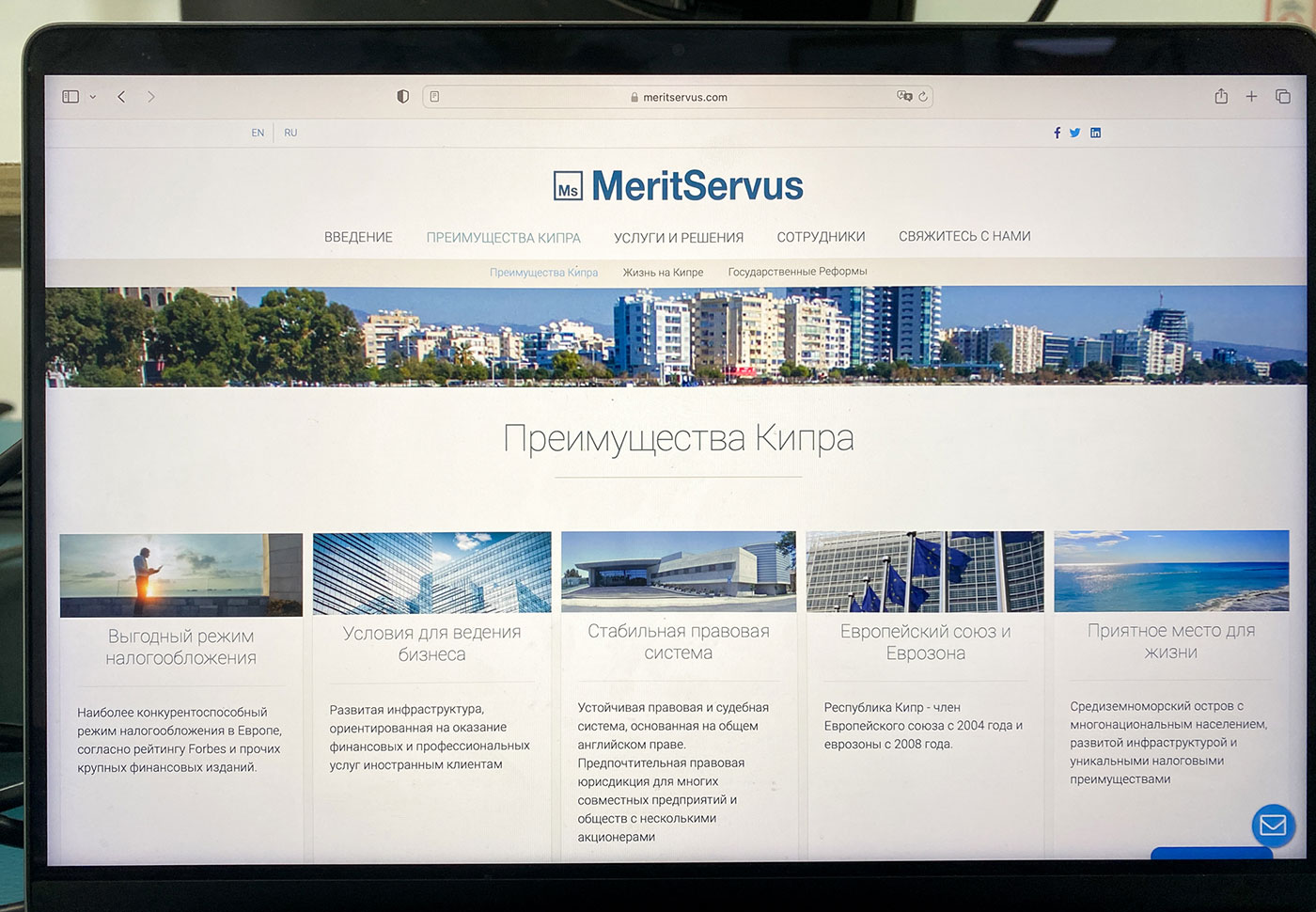[ad_1]
Cypriot corporate service provider MeritServus helped Konstantin Malofeev, an oligarch sanctioned for his support of Russian-backed separatist rebels in eastern Ukraine, transfer debt worth tens of millions of dollars even after he was blacklisted, leaked documents show.
Key Findings
- MeritServus set up the Cypriot company Tinello Investments Limited in 2005 and held the company’s shares on behalf of Malofeev, via a trust deed, until 2017 — keeping Malofeev effectively in charge of the company but his name off its books.
- Between 2014, when Malofeev was sanctioned, and 2017, when it dropped him as a client, MeritServus signed paperwork that helped the oligarch move loans between his Cyprus shell firm and his other companies, despite EU and U.S. sanctions.
- Malofeev, who owns a TV channel that promotes Kremlin propaganda on the Ukraine conflict, was sanctioned for funding Russian-backed separatist fighters in eastern Ukraine.
- Experts said the loan deals likely meant both MeritServus and Malofeev’s Cypriot company had violated sanctions.
Russian investor-turned-propagandist Konstantin Malofeev was able to shuffle tens of millions of dollars worth of debt between his shell companies with the help of a Cypriot corporate services provider despite being sanctioned by the European Union and the U.S., leaked documents show.
Malofeev was blacklisted in 2014 for supporting Russian-backed separatists in eastern Ukraine, which should have barred EU companies from working with him. But the Cypriot firm MeritServus, which was once part of the international accounting giant Deloitte, secretly continued to work with Malofeev’s Cyprus shell company for nearly three years after that before dropping him as a client.
MeritServus’ relationship with Malofeev, as well as other sanctioned Russian oligarchs linked to President Vladimir Putin, is detailed in a leak of internal company files released by the whistleblower group Distributed Denial of Secrets. It is the latest example of compliance failures revealed by the leaked documents. MeritServus and its managing director were sanctioned by the U.K. last week for acting for Roman Abramovich. OCCRP reported on MeritServus’ link to Abramovich in January.
Malofeev, who has been dubbed “the Orthodox Oligarch,” is an enthusiastic supporter of both Putin’s foreign policy on Ukraine and the Russian Orthodox Church, which is closely aligned with the Kremlin. He made a fortune from his Moscow-based investment group, Marshall Capital, during Russia’s economic boom of the 2000s.
He later gained international infamy after his blacklisting for financially supporting Russia’s 2014 incursions into eastern Ukraine. Malofeev also founded Tsargrad TV, which broadcasts pro-Kremlin propaganda on the Ukraine conflict.
In a response to OCCRP’s media partner The Guardian, MeritServus said that it had “inadvertently” failed to identify that Malofeev was sanctioned until 2017 — almost three years after EU sanctions were first imposed on him.
“As soon as our client became aware of this error, it informed its regulator … and reported all transactions,” the firm’s lawyers said, adding that MeritServus had stopped working with Malofeev in March 2017.
“Our client was at all times fully transparent and the position was resolved with both [Cypriot regulator the Institute of Certified Public Accountants of Cyprus] ICPAC and MOKAS (the Cyprus Unit for Combating Money Laundering),” the lawyers said.
Kyriakos Iordanou, the general manager of ICPAC, told OCCRP that it had “summoned MeritServus to its offices” in May 2017 after learning of its work for Malofeev. MOKAS did not comment.
Tom Keatinge, director of the Centre for Financial Crime and Security Studies at the U.K.-based think tank Royal United Services Institute, said that a gap of nearly three years between international sanctions being imposed on Malofeev and Meritservus noticing them suggested “at best a systemic failure in compliance … at worst there was some form of complicit negligence.”
“This sort of failing (whether systemic, negligent or complicit) should almost certainly result in some form of sanction/penalty,” he added.
Malofeev did not respond to requests for comment.
A Secret Beneficiary
MeritServus, a family-run corporate services provider, was set up in the 1980s as part of the global consultancy Deloitte, and until earlier this year claimed on its website to be the firm’s “preferred service provider.” (Deloitte refuted this and said MeritServus had “not been part of, or affiliated with” Deloitte since 2005). It is based in the Mediterranean city of Limassol, which has earned the nickname of “Limassolgrad” thanks to its reputation as a hub for Russian offshore wealth.
MeritServus sets up and administers corporate structures for its clients, marketing itself as the “perfect gateway to the European Union” for customers in countries such as Iran and China. But above all, Russian clients sustain its business.
“The affinity between Russia and Cyprus is clearly not only a matter of tax and commerce. The links between the two countries are cultural and social,” says a promotional message on MeritServus’ website.
In 2005, Malofeev, then an up-and-coming 30-year-old businessman, set up a company through MeritServus called Tinello Investments Limited. He also signed an agreement with FinServus, a MeritServus subsidiary, to operate Tinello on his behalf.
This agreement, known as a “trust deed,” meant Tinello’s shares were registered in FinServus’ name even though Malofeev was “beneficially interested and entitled” to them.
FinServus was obliged to pay dividends to Malofeev and generally follow his wishes at all times, and had to transfer the shares into his name as soon as instructed, the leaked paperwork shows.
In effect, the trust deed allowed Malofeev to maintain full control of the company while keeping his name off its books.
“If you set up an anonymous company, if you put this in a trust, where there is no information available to the public or even to the authorities, you make it very difficult to link an asset or company back to you,” said Maíra Martini, an expert on corrupt financial flows at Transparency International.
Later in 2005, Malofeev established Marshall Capital, a private equity firm that would go on to make investments in major Russian businesses, including a large stake in Rostelecom, the national telecommunications company.
Even though the trust deed with FinServus obscured any outward link to Malofeev, leaked documents show that Tinello quickly began engaging in financial transactions with many of his other companies. In 2006 it began issuing multiple loans to other Malofeev companies, including some owned by Marshall Capital.
Funding an Insurgency
After Russia’s 2014 incursion into Crimea and eastern Ukraine, the EU and U.S. both sanctioned Malofeev for financing separatist rebels. The Ukrainian government also opened a criminal investigation into Malofeev’s alleged support for the insurgents.
Former employees of Malofeev’s companies took prominent roles in Russian-backed separatist regions, including Alexander Borodai, who was installed as the puppet leader of the so-called Donetsk People’s Republic, and Igor Girkin, who was made one of the region’s top military commanders. Girkin, a former Russian military intelligence officer, was later convicted in absentia in the Netherlands for murder over his role in the downing of a Malaysian civilian airliner in 2014, which killed 298 people.
Though Malofeev denies funding separatists in Ukraine, his TV channel, Tsargrad TV, has been a vocal supporter of Russia’s military actions for years. Last year, a page titled “Our Heroes” appeared on the channel’s website, dedicated to Russian soldiers killed over the past year in Ukraine. Young men in military uniform appear beneath captions proclaiming grand, pro-Russian ambitions: “They didn’t go through hell for money, but so that we could live in a Russian world. On peaceful land,” one caption reads.
The channel’s coverage “worship[s] Putin as the second coming of Christ,” according to Irene Kenyon, a former senior intelligence officer at the U.S. Treasury Department who now works as a director at risk consultancy FiveBy.
Kenyon recalled tracking Malofeev’s finances as early as 2014, while she was at the Treasury Department.
“We had information about him funneling weapons and money to separatists in eastern Ukraine. If he can access the global financial system… to transfer money to these separatists, he is funding an insurgency,” she said.
Under EU and U.S. sanctions laws, banks are required to freeze assets if they are more than 50-percent owned by a sanctioned individual, or if that person can be shown to have direct or indirect control of the assets. Companies from the EU or U.S. are largely forbidden from working with sanctioned people or entities.
But for more than two years after EU sanctions were imposed on Malofeev in 2014, the oligarch was able to make financial arrangements for his companies through the trust administered through MeritServus, including signing a new loan agreement and shuffling existing loans between dozens of companies and subsidiaries he owned — some in offshore tax havens like Panama and the Seychelles.
🔗Debt Shuffling
Malofeev was able to use the trust deed to move loans between his offshore companies in a flurry of activity in the first half of 2015, by which time he had been under EU sanctions for at least nine months. MeritServus also signed off on the conversion of dollar-denominated debt to rubles in 2016.
- On March 19, 2015, a MeritServus representative signed an agreement allowing Panama-registered Porthos Management Inc., which was part of Malofeev’s corporate group, to transfer rights to an existing 2.5-million-euro ($2.71-million) loan to Tinello.
- Less than two weeks later, Tinello transferred the rights to a $17-million loan, originally issued to Isma LLC, a Russian company in the Tsargrad group — whose media arm publishes Kremlin propaganda on the Ukraine war — to Aguilas Trading Limited, a Seychelles company previously owned by Malofeev.
- On the same day, Tinello transferred rights to a $3.6 million loan originally issued to Tureya LLC — another Russian subsidiary in the Tsargrad group that is still directed by Malofeev’s brother — to Aguilas Trading.
- On June 3, 2015, Tinello signed an agreement to borrow $7.5 million from Marcap Investments Group Limited, a Cypriot subsidiary of Malofeev’s Marshall Capital. The agreement referred to banks in the U.S. and Switzerland — jurisdictions whose governments had already introduced sanctions against Malofeev — through which repayments would be processed.
- In July 2016 MeritServus authorized the conversion into Russian currency of a $14.1-million loan that Tinello had previously issued to SNM LLC, another Tsargrad group subsidiary which was directed by Malofeev’s brother.
MeritServus seemed to finally become uncomfortable with the Malofeev account in March 2017, when an “internal suspicion report” flagged Malofeev’s refusal to provide an updated passport copy, as well as his failure to prepare financial accounts for more than a decade.
In an undated “client risk indicator,” MeritServus flagged the EU sanctions against Malofeev and several other risk factors including “undue levels of secrecy by client,” a failure to provide “financial/commercial rationale” for at least one transaction, and the fact that the origin and source of his wealth could not be identified.
Shares in Tinello were finally transferred to Malofeev’s name in May 2017, when the businessman’s interest in the Cyprus firm was first recorded in an official company registry.
Experts said that MeritServus appears to have violated EU sanctions by working with Malofeev during this period.
“Any entity involved in this scheme that is in the EU would have been guilty of facilitating sanctions evasion,” said Keatinge of RUSI.
Tinello’s U.S.-dollar-denominated loan from Malofeev’s Marcap Investments Group Limited and other debt transfers may also have violated U.S. sanctions, according to Kenyon.
“The purpose of putting somebody on the [sanctions] list is to cut them off from the U.S. dollar, so if [loans were issued] to Malofeev as a sanctioned individual using U.S. dollars, then I’d think they’d be in violation,” she said.
“Those who are allowing sanctioned individuals and entities to transfer money are opening a gate for these malign actors to access the global financial system and corrupt it,” Kenyon added.
Writing in response to OCCRP’s media partner The Guardian, lawyers for MeritServus said that after learning about the sanctions in March 2017 — almost three years after they were imposed — the firm terminated its relationship with Malofeev and reported all transactions to its regulator, ICPAC.
ICPAC manager Iordanou said the regulator had “requested full disclosure regarding the case” when it spoke to MeritServus in 2017.
ICPAC decided not to penalize MeritServus at the time, but Iordanou said that after the imposition of U.K. sanctions against the company last week, “ICPAC will evaluate the situation and consider whether it would be warranted to take any action.”
Asked whether U.K. sanctions against MeritServus exposed an oversight by the Cypriot regulator, a spokesperson for the Cypriot government defended its track record of implementing and monitoring sanctions. The individuals and companies sanctioned by the U.K. last week had been “submitted to the competent authorities” in Cyprus, the spokesperson said.
Lax Regulations
The EU did not move to standardize punishments for sanctions evasions across the bloc until after Russia’s full-scale invasion of Ukraine last year. Until such a proposal is adopted, however, each member state can continue to set its own standards for enforcement.
Although Cyprus passed a law in 2016 making the violation of EU and U.N. sanctions punishable by imprisonment and fines of up to 300,000 euros (around $320,000), it has long had a reputation for lenient enforcement, and has consistently featured in international money laundering and financial crime scandals.
“Cyprus is very well known as a jurisdiction that’s got pretty lax anti-money laundering regulations,” Kenyon told OCCRP. “That’s why the Russians love it.”
The Cypriot government spokesperson said suggestions the country had undermined sanctions with weak enforcement were “simply ludicrous.”
In the U.S., Malofeev’s associates have run into trouble for helping the oligarch evade sanctions. In June 2015, Malofeev conspired with a U.S. attorney to produce backdated documents purportedly showing that he had transferred his shares in a Texas-based bank to a Greek business partner before sanctions went into effect, according to a U.S. Justice Department indictment.
John Hanick — a former Fox News producer who helped Malofeev set up Tsargrad TV — was charged with violating sanctions and faces a maximum prison sentence of 25 years. Malofeev faces an even steeper sentence but is unlikely to be extradited, though a U.S. judge ordered $5.4 million of his assets seized in February.
Chris Tooke, a specialist on political risk at global consulting firm J.S. Held, said that legal actions against enablers in such cases could prevent future sanctions violations.
“Despite the reputational risks, some people are still going to do it if they think they can get away with it. But if they see robust examples of enforcement in the press, it might dissuade some of them,” Tooke told OCCRP.
Before the invasion of Ukraine last year, many EU companies were still willing to take the risk of serving sanctioned clients, assuming they would not be caught, Tooke said.
“If enforcement is ineffective — if businesses are willing to take the risk of continuing to service these individuals — then the whole sanctions regime just doesn’t work,” he said.
Fact-checking was provided by the OCCRP Fact-Checking Desk.
[ad_2]
Source link











